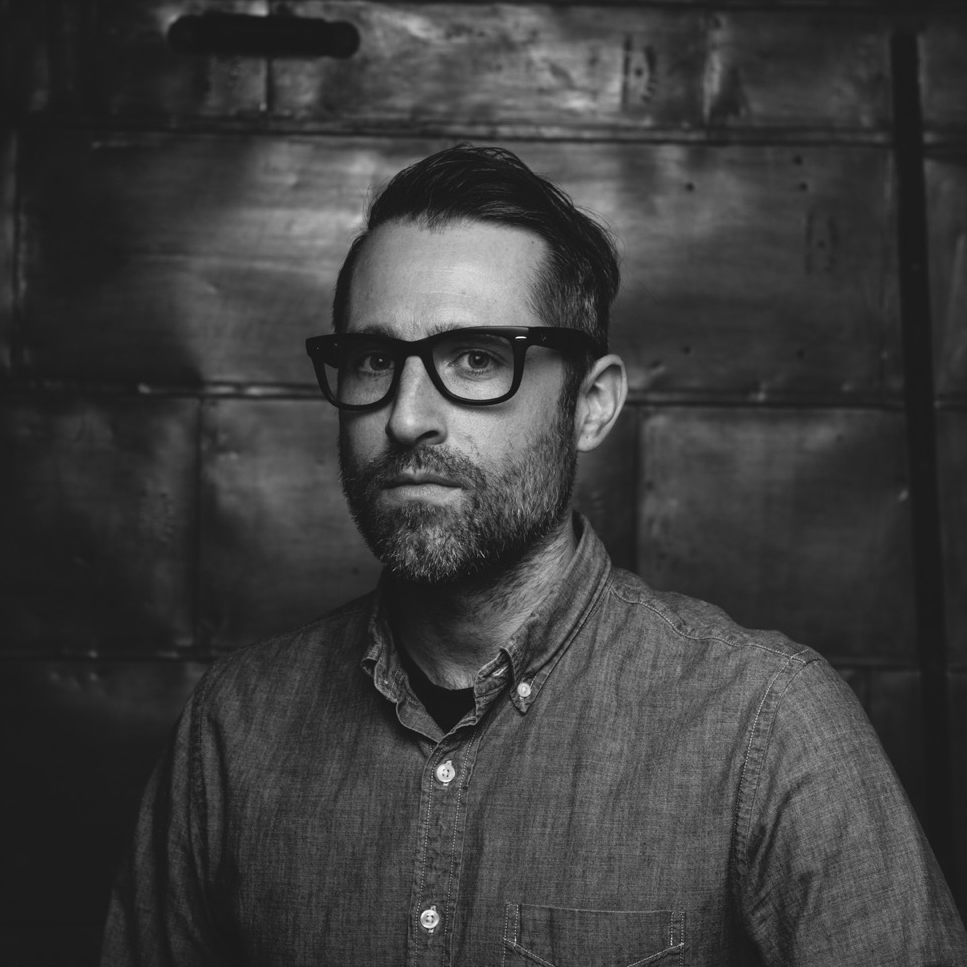St. Vincent Talks New Album and Why She Wore a "Bikini" on Her Guitar World Cover

The following excerpt is from the February 2017 issue of Guitar World.
Annie Clark is officially one step ahead of us. We've always suspected as much, but this fact was confirmed the moment she emerged from hair and makeup for her inaugural Guitar World cover shoot holding a guitar...and wearing a dress that featured a print of a bikini body, just like the kind you'd find hanging in the window of a kitschy beach shop.
Now, a little background may be in order: For years, Guitar World published a one-off magazine, a buyer’s guide that featured—you guessed it—models posing with musical equipment. That mag may no longer be in production, but the internet remembers all and provided Clark with some ripe source material for her cover concept.
“I did a quick Google search of women on the cover, and all I really saw was girls in bikinis holding guitars like they’ve never held a guitar before,” says Clark. “I started thinking about that and just wanted to make my own absurdist comment on it. I couldn’t really let it slide without poking a bit of fun and taking the piss a little!”
Clark’s sly comment on the magazine—literally on the cover of the magazine—is definitely a kick-ass meta move. But her disruption of the status quo doesn’t stop there. Performing as the enigmatic, experimental St. Vincent, she has become what might best be described as a postmodern guitar hero, and for the last decade has been subtly injecting some truly exciting guitar playing into the pop music landscape.
In broad strokes, the music of St. Vincent—heard on her five studio albums—is an expertly crafted blend of art rock, indie, jazz and progressive pop. Clark constructs songs in which haunting melodies, syncopated rhythms and dissonant chord progressions set the stage for her insightful observations of life in the digital age, which she delivers in a detached, yet surprisingly vulnerable, singing style.
Clark is an exacting songwriter whose deft guitar playing is put on display only when it’s in support of the song. But when the song calls for it—often at the most unexpected times—she can unleash a torrent of heavy grooving two-handed tapping or the kind of searing effect-laden solo that will send shivers up your spine. And for as cool and complex as her songs can be, Clark’s approach is also imbued with an endearing playfulness. So it’s not surprising that Dweezil Zappa has said young listeners looking for a pathway into his late father Frank’s quirky, far-out catalog should listen to St. Vincent.
Get The Pick Newsletter
All the latest guitar news, interviews, lessons, reviews, deals and more, direct to your inbox!
Clark draws from an aptly diverse range of influences—from Robert Fripp, Steely Dan and Marc Ribot to Nick Cave, Nirvana and Dimebag Darrell—without mimicking any of them. Instead she’s created an inventive, sophisticated approach to contemporary guitar playing and composition and achieved what might be the principal goal for all guitar players: she’s found a unique voice. Like all noble pursuits, it took time (and a lot of woodshedding) to develop her style. That work began three decades ago under the wide-open Texas sky.
Annie Clark was born in Tulsa, Oklahoma, in 1982, but grew up outside of Dallas, Texas, which is where she first discovered her innate connection to the guitar.
“Guitar was one of those things, those callings,” she says. “It just hit me. I would draw guitars, and make guitars, when I was five years old. I was completely obsessed with the shape. I loved it. I was in love with it even before I started to play it.”
When she eventually picked up a guitar in her teens, Clark consumed a steady musical diet of grunge, rock and metal, as well as some jazz courtesy of her uncle, guitarist Tuck Andress of husband and wife jazz duo Tuck & Patti. The Andresses played a significant role in the young guitarist’s upbringing. Initially they offered her a sneak peek into the life of a touring musician when they brought her on for a stint as a roadie, and later, when she approached high-school graduation, they strongly urged her to further her musical education at the university level.
Clark recalls, “I remember very pointedly Tuck and Patti called and said, ‘She needs to be a musician. She should go to Berklee and get additional training.’ ”
She heeded their advice, and headed to Boston to begin coursework at the Berklee College of Music. Clark spent three years dutifully studying theory and performance at Berklee, but ultimately grew tired of the curriculum and dropped out. Following a brief layover in New York where she failed to gain traction in the music scene, the crestfallen guitarist made her way back to Texas.
“Since I was a five-year-old kid I knew I was going to play music. I was just going to do it,” she says. “So when I had to move back home after dropping out of college it was depression that I had never felt in my life. Like, Oh, I’m a failure. This was not part of the plan.”
But her disillusionment was short lived. Not long after she returned to Texas, a friend who played with Dallas-based orchestral psych-pop group the Polyphonic Spree mentioned they were expanding their ranks, and got Clark an audition. She landed the gig, and was soon whisked away into the life of a touring musician.
“I was on tour in Europe for a month, opening for Brian Wilson at the Hollywood Bowl, working in Pachyderm [Studios] where Nirvana recorded, and at Steve Albini’s place in Chicago,” she recalls. “I was in it. I was in the game, you know?”
The Polyphonic gig provided the jumpstart that Clark’s career needed, and kicked off a decade of an entirely different musical schooling on the road, which first saw her supporting indie artist Sufjan Stevens before she transitioned into near non-stop world touring as St. Vincent. In the last few years, Clark has surfaced all across the pop culture landscape: fronting the surviving members of Nirvana at the Rock and Roll Hall of Fame, performing with the Dallas Symphony Orchestra, making a rocking guest appearance at a Taylor Swift gig, covering “The Star-Spangled Banner” for an NFL promo spot, cutting a record with Eighties art punk David Byrne, performing at the behest of David Lynch at the director’s Festival of Disruption and appearing onstage at the Grammys to collect the Best Alternative Album award for 2014’s St. Vincent.
In 2015 she also found the time to conceive and develop a signature guitar, which debuted as the Ernie Ball Music Man St. Vincent model at the 2016 NAMM tradeshow. The St. Vincent six-string—which boasts a unique, asymmetrical body shape, custom St. Vincent Music Man Modern tremolo, all-rosewood neck and three DiMarzio custom mini humbuckers—has become one of the brand’s best-selling guitars, and has inspired a who’s-who of taste-making artists, including Beck, Dave Grohl, Josh Homme and Taylor Swift, to request St. Vincent models from Ernie Ball.
The success of the launch, coupled with the personal connection she’s developed with the Ernie Ball team, has Clark excited to explore future gear collaborations with the company. “Well, Sterling [Ball] is like my third father,” she says, with a laugh, of the company’s CEO. “They’re a family company and they’ve made me part of the family. So as far as I’m concerned I’m a lifer.”
But at the moment Clark’s primary focus is on completing the follow-up to St. Vincent. The process for recording the new as-yet-untitled album (which is due for release this spring) has been more drawn out than past efforts, but has produced what she describes as a “real sea change” in her sound.
“I’ve been able to step back and reflect and not just be in the tour, record, tour, record cycle that I’ve been in for about 10 years,” says Clark. “I think it’ll be the deepest, boldest work I’ve ever done. I feel the playing field is really open for creative people to do whatever you want, and that risk will be rewarded—especially now that we have such high stakes from a political and geo-political standpoint. The personal is political and therefore the political can’t help but influence the art. And only music that has something pretty real to say is gonna cut the mustard.”
For the following interview, we meet Clark at the Ivory on Sunset, a small restaurant discretely tucked beneath the chic Mondrian Hotel in West Hollywood. Over a beer and a cappuccino (“My perfect combination. I don’t like drug drugs, so coffee’s my best upper.”), the guitarist reflects on the roads she’s traveled and reveals where she’s headed in 2017.
First things first, I gotta ask: How was that recent gig at David Lynch’s Festival of Disruption? That looked like a wild night.
I wanted to do something particularly special, a new kind of performance piece, as pretentious as that sounds. [laughs] I had these dancers who I’ve worked with before, and they dressed as weird blonde twins and did this postmodern version of the Blue Velvet scene with Dennis Hopper and Isabella Rossellini, the one with the oxygen mask. It was so fun!
Lynch’s work, both musical and cinematic, speaks to left-of-center thinkers. You grew up in Dallas, which is pretty conservative. Was it a struggle to find likeminded musical weirdos?
Music has always been the key. I was really shy and nervous growing up. But I had like a “put me in coach” mentality with music. The thing that’s so great about it is that you meet all manner of different people playing music. The first band I played in was a metal band with junior high guys.
Oh nice. What kind of stuff were you playing?
It was Maiden, Megadeth, Metallica, Rage [Against the Machine] and AC/DC covers, and I played an iridescent purple Ibanez bass. Because when you’re 13 there’s a circle of people who all play music…but no one wants to play bass! [laughs] Everyone wants to be the lead guitar player. But I just wanted to play.

Brad is a Brooklyn-based writer, editor and video producer. He is the former content director of Revolver magazine and executive editor of Guitar World. His work has appeared in Vice, Guitar Aficionado, Inked and more. He’s also a die-hard Les Paul player who wishes he never sold his 1987 Marshall Silver Jubilee half stack.
“The rest of the world didn't know that the world's greatest guitarist was playing a weekend gig at this place in Chelmsford”: The Aristocrats' Bryan Beller recalls the moment he met Guthrie Govan and formed a new kind of supergroup
Carlos Santana hospitalized following pre-show medical emergency










